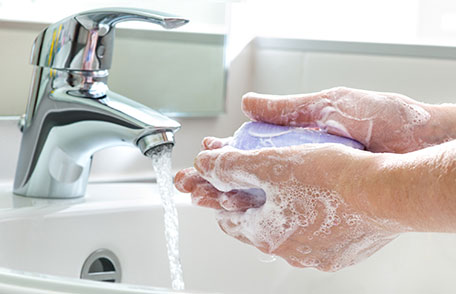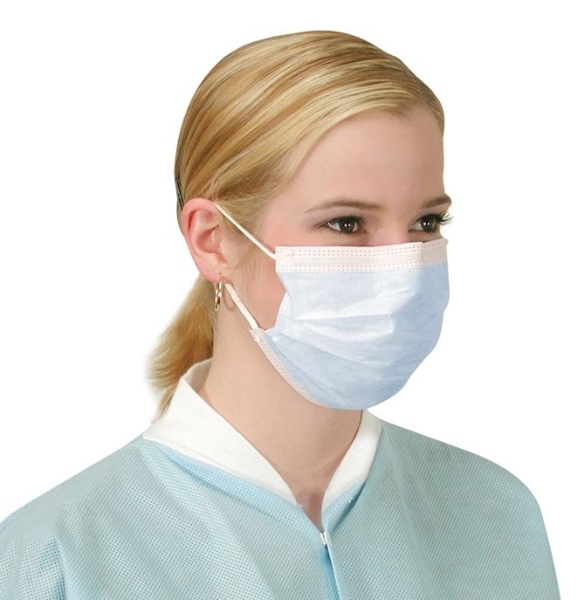Infections spread and sometimes there’s little that we can do about it. You can come into contact with somebody who is carrying an infection without either of you knowing it and end up sick as a result. Or, all it might take is simply being in the same space as somebody who’s sick, such as on public transport, to wind up infected yourself. The good news is that by taking the following preventative measures, you can minimize your risk of catching diseases or passing them on.
1. Wash Your Hands Regularly
Washing your hands should become a regular habit in your daily life. It not only will keep your hands clean but it helps to prevent passing infectious diseases onto others, but it’ll also wash away anything that could have ended up on your hands in public. When washing your hands, it’s best to use soap and warm water, and rub your hands together really well for around fifteen seconds making sure to clean your fingertips, fingernails, between your fingers and the backs of your hands. It is no use just applying soap and allowing it to rinse straight off, as it is actually the rubbing motion that rids you of most of the bacteria that is on your hands and, therefore, you should never skip this step, no matter how much of a hurt you are in. If you don’t have access to running water or are on the go, clean your hands with an alcohol-based hand sanitizer.

If you are in any role where you come into contact with many people, you should increase the number of times you wash your hands. For example, anyone in healthcare needs to clean their hands before and after touching a patient, as well as in-between any procedures. Keeping your fingernails short is the best way to ensure that you are not carrying around dirt and bacteria that you cannot easily get rid of. If you wear jewelry such as rings, it is important that you move these and clean under them, as this is a part that is often missed. As a general rule, you should clean your hands before eating, after using the bathroom, after taking out the trash, after visiting someone who is sick, or after touching an animal.
2. Cover Your Mouth and Nose
Many infectious diseases are spread through coughs and sneezes. In fact, did you know that germs can travel over three feet when you sneeze or cough? Keep a tissue or handkerchief handy to use for covering your nose and mouth if you need to cough. And be sure to throw away used tissues after each use and wash your hands afterward. If you don’t have a tissue and have to use your hands, make sure that you wash or sanitize them straight away.

This is an extremely difficult habit to teach our children to maintain it, so it should be taught from an early age. Many toddlers become ill when they first go into nursery or pre-school and this is because children aren’t aware of how easy infections can be spread. Teaching your child to cover their mouth when coughing or sneezing and the importance of cleaning their hands afterward means they are more likely to grow up with this good habit.
3. Avoid Close Contact with Others If You’re Sick
If you’re not feeling well, then it’s best to avoid contact with others as much as possible. Try not to touch others or shake hands – most people will be understanding if you explain why you refuse to shake their hand! If you need to see your doctor, it’s a wise idea to call beforehand to see if there is anything that you can do to avoid passing your illness on to others in the waiting room.
If you are unsure of how contagious your illness is, it is a good idea to check up online first to see how you can limit the chances of passing it on to family or friends. If you do have any illness that is contagious, it is also best to stay off school or work, as this will just cause others to become ill and need to take time off too. Some illnesses, such as impetigo, which is a bacterial infection of the skin, can be passed on just by wiping your face on a towel and then allowing someone else to use it.
4. Keep Vaccines Up to Date
One of the best ways to maintain infection precautions for you and your family is to ensure that everybody’s vaccinations are up to date. It’s important to ensure that all vaccinations are current, even for adults. You can be vaccinated against several diseases including chicken pox, tetanus, measles, shingles, meningitis, hepatitis, mumps, whooping cough, flu, pneumonia, and human papillomavirus (HPV). You may need extra shots if you are going abroad and this can be discussed with your doctor or nurse before travel. In some countries, you are more likely to catch diseases such as yellow fever and bringing this back to your country may increase the incidence rate.
The more people choose to get vaccinated, the safer we will be against the most infectious and deadly diseases. This is called herd immunity and it means that the disease is unable to spread as most people are vaccinated, meaning less chance of anyone catching the disease, even those who are unvaccinated. Even so, something as simple as the flu has the ability to kill a healthy adult or child, so you shouldn’t just rely on others being vaccinated. You are especially prone to catching infections when you are over 65 or when you are a child, so if you or a loved one is in this age range, ensure they keep up-to-date with all vaccinations offered.
Doing your bit to prevent the spread of infection wouldn’t help you and your family safe. But it also help the others around you safe.


